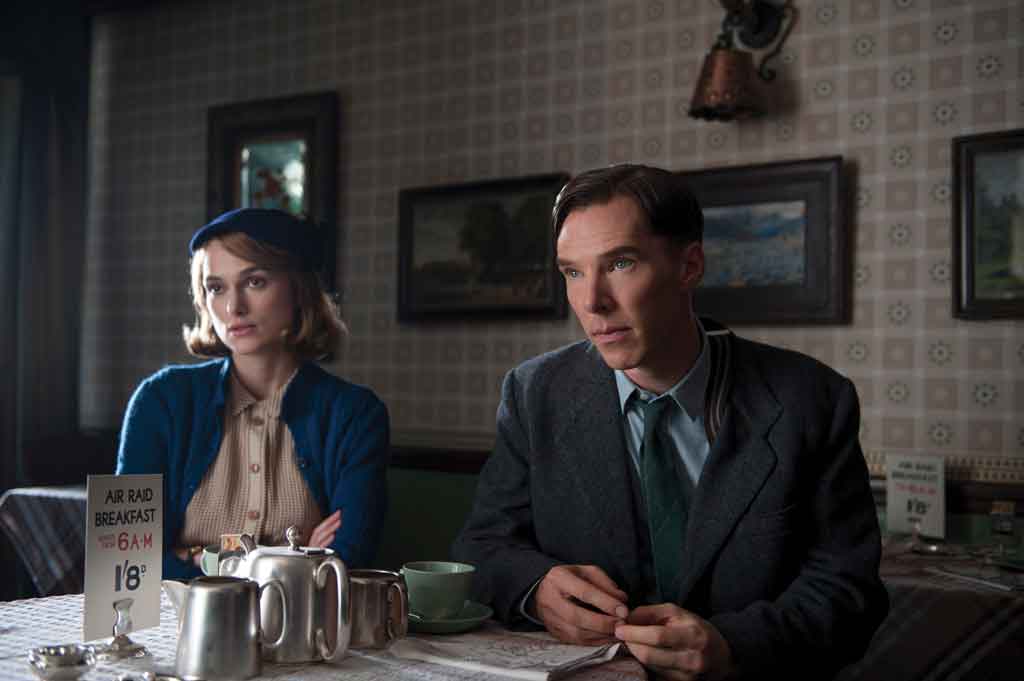By Mitch Huttema (The Cascade) – Email
Print Edition: January 14, 2015

The Imitation Game, directed by Morten Tyldum, stars Benedict Cumberbatch as Alan Turing, and Keira Knightly as his strictly platonic fiancée. Cumberbatch et al bring a passable performance to a film with a mediocre script. Simple and informative, but lacking in depth, the film is rife with cliché characters and the same old stereotypes we’ve seen in every half-assed novel, film, and story before this.
Right from the start, Alan Turing is presented the same way, as every other human with Asperger’s to grace the screen. He is unable to understand jokes to a fault, causing him to nearly lose a job opportunity. He’s first written off as a jerk, but then — like every character before — at the last second, everyone loves him and comes to his rescue, having suddenly seen past his flaws.
The Imitation Game contains a subplot bearing little importance to the rest of the story. Unknown intruders ransack Turing’s apartment, leading to police investigation, a nosy inspector and Turing hustling them out. The inspector takes issue with being thrown out by Turing and begins an illegal and frivolous investigation into him. He eventually uncovers that he is homosexual (illegal at the time). This subplot is a cheap answer to the director’s problem of not knowing how to present his message through good filmmaking.
To finish his film, Tyldum fades out with some on screen text (like every other “based on a true story” film) outlining how homosexual men were repressed, imprisoned and completely mistreated by the British government. While these facts are true and absolutely dreadful, using text to relay them at the end of a film is disrespectful and a cheap shot. What happened to making films that spoke for themselves?
There is a low quality of narrative; Tyldum presents the film with no artistic vision through bland cinematography and a heavy reliance on plot to keep the film engaging. The movie is essentially a regular historical biopic that relays the facts of a brilliant man who cracked the Enigma code, saved 14 million lives, cut short WWII by years, and also happened to be gay. This film is great to watch if you simply want a relaxing night with the added benefit of learning little-known facts from WWII. But from a critical filmmaking perspective, the director completely fails to bring forth his point, and sets about like a first-year fine arts student and pins a meaning onto his work which cannot speak for itself.

